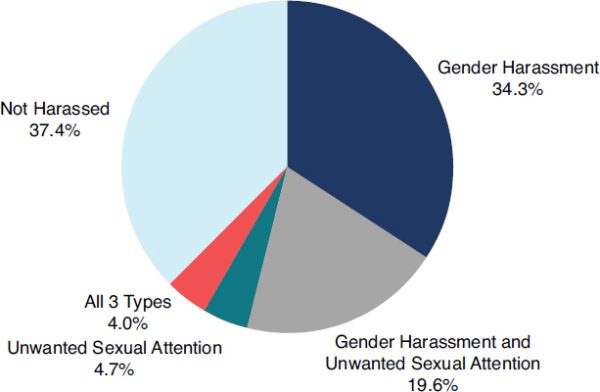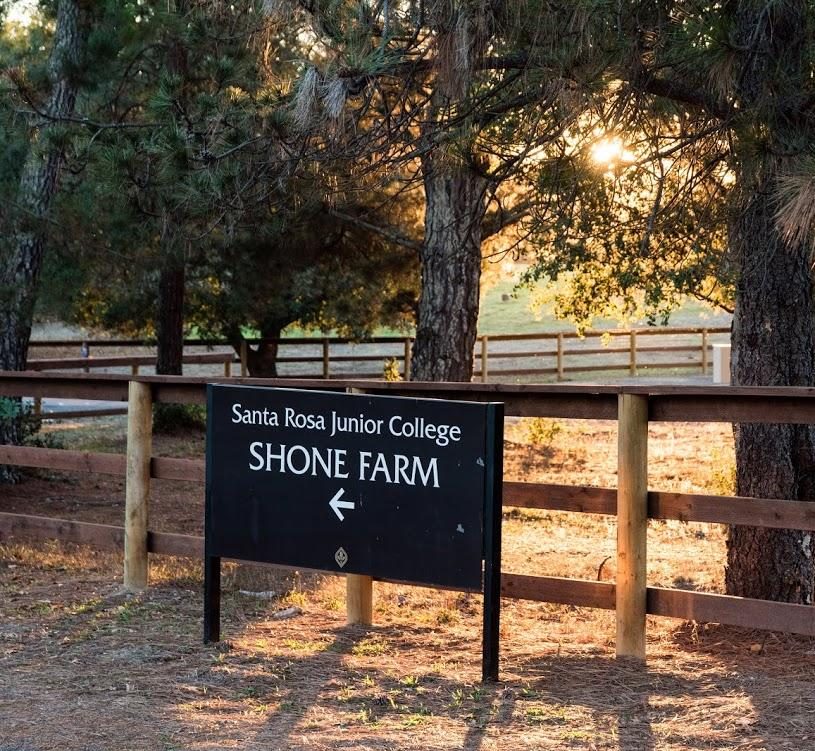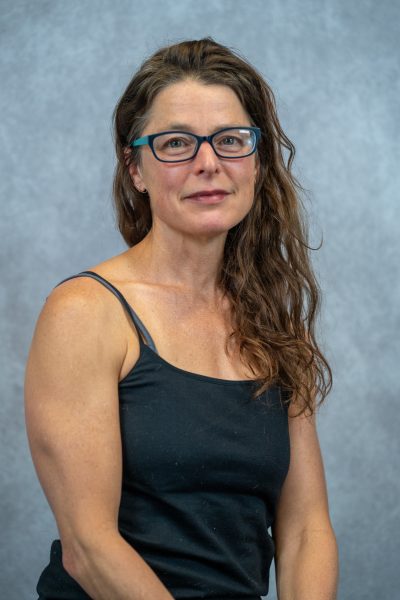Santa Rosa Junior College student Aishwarya Kancharla felt blindsided by news that her instructor, Briana Boaz, had resigned from the agriculture and natural resources department this spring.
Kancharla was supposed to be Boaz’s student in fall 2023 when she learned — the day before the fall semester started — that one of her courses with Boaz had been reassigned to a different instructor and that the other course had been canceled. Students registered for Boaz’s classes received no explanation for the changes then, nor for months after, according to several students who spoke with The Oak Leaf.
The backstory finally emerged in a Press Democrat article on May 29, after the conclusion of the spring 2024 semester. From the article, Kancharla and other natural resources students learned that Boaz had taken a leave of absence in fall 2023 after submitting complaints about the department’s dean. She never returned to teach. Instead, Boaz resigned.
While students remained in the dark, the news of Boaz’s resignation circulated much earlier – in February, when Boaz attached her resignation letter as auto-reply for her SRJC email account. Her resignation letter reached a broader audience when it was read aloud to the department’s advisory committee meeting in early May.
The reasons she gave for resigning, first reported by The Press Democrat, included years of alleged managerial misconduct by Benjamin Goldstein, dean of agriculture and natural resources at SRJC. In addition to interviewing Boaz, The Press Democrat also spoke with Amy Housman, an animal science instructor who had also submitted complaints about Goldstein, and K. Frindell Teuscher, chemistry instructor and faculty union representative.
Following the article’s publication, several students in agriculture and natural resources reached out to The Oak Leaf to express their shock, dismay and concern about the college’s failure to address the six-years of managerial misconduct and sexual harassment complaints.
“We are losing so much expertise because of the toxic work environment at Shone [Farm],” Kancharla said.
The students described the acute disruption to their studies when the instructors suddenly disappeared and their sorrow and anger when they found out the causes behind their instructors’ leaves of absence. The news of the controversy, along with a mass exodus of faculty and staff from the agriculture and natural resources department, also spurred faculty members to send strongly worded reactions to district administrators.
The Press Democrat article was based in part on a third-party investigative report, initiated by SRJC in response to Title IX complaints by four female SRJC staff and faculty – Housman, Boaz, Lynn Ellerbrock and Joanna Chu – about Goldstein, obtained by The Press Democrat. The district denied The Oak Leaf’s public records request for the third-party investigative report because, as it involved personnel, it was exempt from disclosure.
In 2023, the district hired an outside party, School and College Legal Services of California, to conduct the investigation, led by attorney Jessica Ozalp. Besides the four complainants, Ozalp interviewed other faculty and staff associated with the department, including Goldstein, Kevin Sea, former department chair, and other men in the department. The report did not sustain sexual harassment allegations against Goldstein. However, the report sustained or partly sustained several separate accusations relating to “inappropriate and unprofessional behavior,” according to the Press Democrat.
Boaz, who spoke with The Oak Leaf before The Press Democrat article was published, attributed her extended leave of absence and eventual resignation, along with the departures of eight other former staff or faculty, to Goldstein’s managerial problems.
The Oak Leaf reached out to Goldstein multiple times and received no response.
“Santa Rosa Junior College takes all allegations of discrimination and sexual harassment very seriously. Nothing is more important than the safety and welfare of the members of our community,” said Sarah Laggos, spokesperson for Santa Rosa Junior College district in an email to The Oak Leaf. Laggos pointed to the district policy manual process for sexual harassment complaints and stated, “SRJC investigates reports of discrimination and harassment and conducts an effective, informed, and thorough investigation protecting the rights of all parties to a complaint. In this case, a third-party investigation was conducted, and all parties were given due process.”
Yet, for those impacted by the resignations, the process felt covered up.
Mike Starkey, faculty in the digital media program, was outraged after reading the Press Democrat article.
“This article made my head explode,” he wrote in an email to all SRJC faculty and staff members. “This is unconscionable behavior and just can’t be overlooked, hushed, ignored or hidden. EVERYONE who works at SRJC needs to see this now!”
In response to Starkey’s email, President Angélica Garcia wrote, “Every person at SRJC deserves a learning and working environment that is free from harassment.” She took the opportunity to summarize the district’s policy and procedures for reporting sexual harassment and reminded the community that it was not appropriate to discuss a confidential personnel issue over email.
Starkey responded a few hours later.
To make fully public his response, Starkey sent his June 4 email addressed to President Garcia to all SRJC district faculty and staff, and to individual email addresses for the members of the president’s cabinet, including the vice presidents of academic affairs, student affairs, human resources and finances and accounting, the district spokesperson, and executive officer for the superintendent of the board of trustees.
He expressed his disgust at the alleged cover-ups and silence surrounding the allegations of sexual harassment and managerial misconduct in the department of agriculture and natural resources. “This is so OUTRAGEOUS, it may be time for a protest or a strike,” he wrote.
He would turn the agriculture and natural resources department upside down and create a forum for all stories, past and present, to be aired, he said. “It saddens me as a faculty member here for over 25 years now, to see the decline in integrity and accountability at this institution that I care so deeply about. This school used to be a respected foundation in this community,” he said in the email.
On June 5, the All Faculty Association dispatched an email to all SRJC faculty members distancing the union from the district’s decisions and actions. “While we disagree with the District’s response to the results of the [third-party] investigation, we believe that all SRJC employees should work in an environment that is free of hostility, harassment, and discrimination. AFA is disheartened by the impact these events have had on the complainants and hope that all involved receive the appropriate support needed.”
The fall-out continued through June 10 as Starkey exhorted all men to step up and support women, and Theresa Richmond, vice president of human resources, again provided all faculty and presidential cabinet members with the link to submit complaints. “I will do everything possible to ensure a timely and thorough response to all complaints,” she wrote.
Nine women and men deemed the department an unfit work environment
In total, nine individuals — six women and three men — have resigned, taken leave from or transferred out of the SRJC agriculture and natural resources department since 2018 to distance themselves from the mismanaged environment under Goldstein, according to Boaz.
The first to leave was Rachel Smith, Goldstein’s former administrative assistant, Boaz said. Smith submitted complaints about Goldstein to human resources in 2018 and she subsequently moved out of the department and into a different job at SRJC, according to Boaz. The Oak Leaf reached out to Smith several times but received no response.
Housman also submitted complaints to human resources in 2018, she told The Oak Leaf by text. She took leave from her tenured faculty position this spring but is still employed by SRJC. Maddie Giltner, former department administrator, transferred to Culinary Arts in January 2024, according to Boaz. Boaz resigned in March. Ellerbrock worked at Shone Farm for a decade; she quit in May, as did Clare Riesman, instructional assistant, Boaz said. She said three men, Josh Beniston, George Sellu, and Dan Famini, also quit or transferred to another department because of the managerial mess in the ag department.
Famini confirmed his intention to resign in an email to The Oak Leaf and Boaz in an interview. The six others have declined to speak to The Oak Leaf due to concerns about retaliation, according to Boaz. The Oak Leaf also reached out multiple times to former department chair Sea and current chair Joel Grogan; neither responded.
The alleged managerial misconduct impacted others associated with the department as well. Stephanie Larson, county director for the UC Cooperative Extension and livestock range manager adviser, quit her position on the agriculture and natural resources advisory board committee. Larson did not respond to The Oak Leaf’s requests to speak with her.
Resignations and departures disrupt students’ studies and careers
SRJC student Denise Parks was a student of Housman and Larson, who taught rangeland management. Larson was a fantastic teacher, she said.
Kancharla also spoke highly of Larson, describing her as approachable, caring and professional. Larson introduced her students to many professional opportunities. “The fact that she’s teaching at a JC level is amazing – that students have access to this level of expertise. [That she is] stepping back from any role is a detriment to the students,” Kancharla said. “There are amazing women teaching in that department and they need to be protected and given assurances that they have a safe and comfortable work environment.”
Student Wren Ward credits Boaz’s teaching for inspiring them to build a career in natural resources. In addition to Boaz’s infectious enthusiasm for natural resource management, attending classes in the department, seeing LGBTQ representation, people of color, and a diverse mix of age groups created what Ward thought to be a safe environment. It was impactful and inspiring, they said.
“Seeing that representation and having a young woman [Boaz] be the [program] head was really really cool to me,” Ward said. “Because it was a sign that the industry was changing. It wasn’t what I had thought it was. And that I have representation in it.”
To find out what their instructors were battling behind the scenes undermined the students’ sense of security. “The exodus of so many women based on sexual harassment issues is going to make the NMR department feel that much more unsafe for women, LGBTQ and other marginalized groups,” Ward said.
The 2023 third-party investigative report, however, did not sustain sexual harassment charges.
It did sustain or partly sustain several separate accusations relating to inappropriate and unprofessional behavior, according to The Press Democrat.
Ward and other students are currently organizing themselves to take action and demand change within the department. In a June 9 email to other natural resource management students and wildlife resilience interns, Ward wrote that the district’s inaction in response to multiple complaints led to the eventual lapse in funding for the wildlife resilience program. The Oak Leaf could not confirm the cause of the funding lapse; The Oak Leaf emailed multiple department faculty who did not respond. The students want the programs reinstated and open instructor positions filled “with individuals committed to an inclusive and professional workplace culture and learning environment,” Ward wrote in the petition circulated over email.
The petitioners intend to take concrete steps to ensure an inclusive and supportive workplace environment at Shone Farm in compliance with education and employment laws and regulations, Ward wrote. The petition’s fourth goal is to “Hold accountable members of the administration, including Benjamin Goldstein, for allowing a toxic workplace and learning environment to fester,” Ward wrote.
Resignations and departures point to a pattern of misconduct in the department
According to the complainants, the problems began in 2018, the year SRJC hired Goldstein as junior dean in the agriculture and natural resources and culinary arts departments.
“I have repeatedly gone to [the] administration about the issues in my department since 2018,” Housman said in a text to The Oak Leaf.
Goldstein studied international affairs at UC Berkeley. After earning a masters in International Affairs from American University, he worked for three years as a research associate for a think tank in Washington, D.C., and then nearly six years for the Department of Energy as a workforce development coordinator. From there, Goldstein moved to the West Coast and into academia. He held the position of dean of academic affairs and workforce development at Los Angeles Trade Technical College for just under two years before SRJC hired him.
For Boaz, the problems began in July 2020. Boaz had earned a master’s degree in biology from UC Berkeley in 2016 and had taught as an adjunct faculty in environmental sciences at Chabot College. During the pandemic, SRJC hired Boaz for a faculty position in the agriculture and natural resources department. Goldstein, her direct report, began calling her in July about the classes she would teach that fall.
While Boaz was excited about her new job and new home in Guerneville, she found the calls jarring. “Benjamin kept calling me, which I thought was bizarre – that someone who will be my boss in a month is calling my personal number. I’ve never worked at a place that did that,” she told The Oak Leaf in May 2024.
Goldstein called Boaz because he kept changing the classes he’d assigned her to teach, she said. At first, Goldstein told Boaz she would teach four classes: two sections of introduction to environmental conservation class, a forestry class and a tree and shrub plant identification class. But then Goldstein added another class to her schedule, putting her at 120% workload for her first semester. As a new hire, Boaz didn’t feel that she had the choice to say no. And, “he has a way of wording things that makes it sound like you don’t have a choice,” Boaz said.
She said she didn’t bring the issue up with human resources because “I hadn’t even officially started yet. So I felt like I couldn’t say no.”
Perhaps most destabilizing was the back and forth. The calls kept coming, and with each call, the workload would change. On again, then off. Then on. In the end, they reached a “compromise,” where Boaz said she felt she ended up doing more work for less pay. “I was doing 120% workload but only getting paid 100%,” she said.
In addition to her teaching load, Boaz said she was also the program coordinator for natural resources, hence responsible for the statewide curriculum and organizing different majors and degrees, which was a lot since it was career technology.
The pandemic compounded Boaz’s sense of isolation from her new department, she said. All of the teaching was online and she didn’t get to meet her colleagues in person for the first year.
Once in-person instruction reconvened, Boaz began to meet her female colleagues in 2021. Through conversations with them, she learned that other faculty and staff had submitted complaints about Goldstein for three years, she said.
In emails, texts and an in-person interview, Boaz described what she called a pattern of inappropriate action or no action in response to multiple complaints and allegations of harassment or misconduct by Goldstein dating from 2018.
“And I think that’s the big thing with Benjamin that he violates everyone’s boundaries constantly. Personal and professional. [After two years,] I ended up blocking his phone number because he wouldn’t stop texting me.”
She further questioned the dean’s handling of a $2 million grant-funded Wildfire Resilience Program that was defunded with a month’s notice in Fall 2023, she said by email. Boaz, who had coordinated the program, was away on medical leave at the time.
Boaz reached out to The Oak Leaf because she said she hopes to protect other women students, staff and faculty by making public the complaint process and consequences.
Boaz spoke about a culture of discrimination and sexual harassment that surpassed any previously encountered in her 15 years working in a male-dominated field in Texas, as described in her resignation letter sent out as an auto-reply in February and read at an Academic Senate meeting on May 1. The sexual harassment claim involved what Boaz described as inappropriate romantic advances by former Shone Farm manager Chris Wills, which prompted her to file a Title IX complaint, detailed in the Press Democrat article.
According to a 2018 report by the National Academies of Science, Engineering and Medicine, more than 50% of women faculty and staff and 20% to 50% of women students experience sexual harassment in colleges and universities. The frequency and intensity of harassment vary by academic field, but research shows a higher number of incidents in science, engineering and medicine. These fields share certain characteristics: Often a male-dominated environment with men representing a greater percentage of the field and occupying far more positions of power; Typically demonstrating implicit tolerance for sexually harassing behaviors; An established hierarchy within trainee-faculty relationships; And isolating environments, such as laboratories, field sites, or hospitals. Together, these factors work to condone and reinforce the harassing behaviors.
According to victims’ reports, this behavior continues, particularly in male-dominated fields, because those who speak up are retaliated against and, generally, little or no action is taken against those who perpetrate the misconduct, the study found.
Housman described making repeated complaints to the administration about Goldstein starting in 2018. Despite having worked at SRJC for eight years, she took leave because of the district’s failure to follow up with the complaints about the dean’s alleged behaviors. According to Housman, former Human Resources Vice President Gene Durand said the department would have to work through the problems and that if people resigned over it, he would not stop them.
On May 21 The Oak Leaf requested SRJC emails to, about, or from Goldstein. SRJC emails are considered public domain and, hence, subject to public records request. SRJC public records denied the request for all emails and responded that emails between Goldstein and one complainant would require several months to compile and review due to staffing limitations.
The Oak Leaf also reached out to Stephanie Jarrett, SRJC purchasing and risk management & Title IX coordinator, to query the history of sexual harassment and managerial misconduct allegations at SRJC between 2018 and 2024. Jarrett provided The Oak Leaf with a link to the California Community Colleges Equal Opportunity annual certification form.
According to the 2023 equal employment opportunity annual recertification form adopted by the California Community Colleges Board of Governors in 2021, SRJC received and resolved two sexual harassment complaints. One complaint was sustained in part, the other sustained in whole, and both were resolved according to the document (without any accompanying explanations or names of parties involved).
Housman expressed concerns over whether the district had the means “to create an equitable workplace.” She responded to Starkey’s email to thank him for speaking up and to emphasize her sense that the problems at SRJC go beyond the agriculture and natural resources department.
“I’ve received a dozen emails from women across campus who have experienced multiple incidents of harassment and discrimination,” Housman wrote. “I know of several others who confided in me during my time here. It is clear that while we have processes no one believes in them or feels safe enough to use them. I can’t imagine how many women have left due to working conditions they didn’t report while the men who have harassed and intimidated them have remained, growing that culture rather than the culture of belonging this district claims to want.”








Becky • Jun 16, 2024 at 4:05 pm
Goldstein has been a problem since he started. In 2017 he came in and gutted the long standing equine program, got rid of all animals and livestock at Shone farm with a supposed grand plan to update things and make a bigger, better program. He was initially going to quietly auction off the school horses until that info went public and then changed it to “adopting” out the horses. Several staff lost their positions during that “transition” due to Goldstein and his restructuring. Now the whole department is a mess.
Anonymous • Jun 13, 2024 at 9:17 pm
Three of us decades long JC ag instructors’ jobs were terminated when he arrived as dean. We spoke out and fought for our positions. We were ignored. (Prior to those mentioned above)